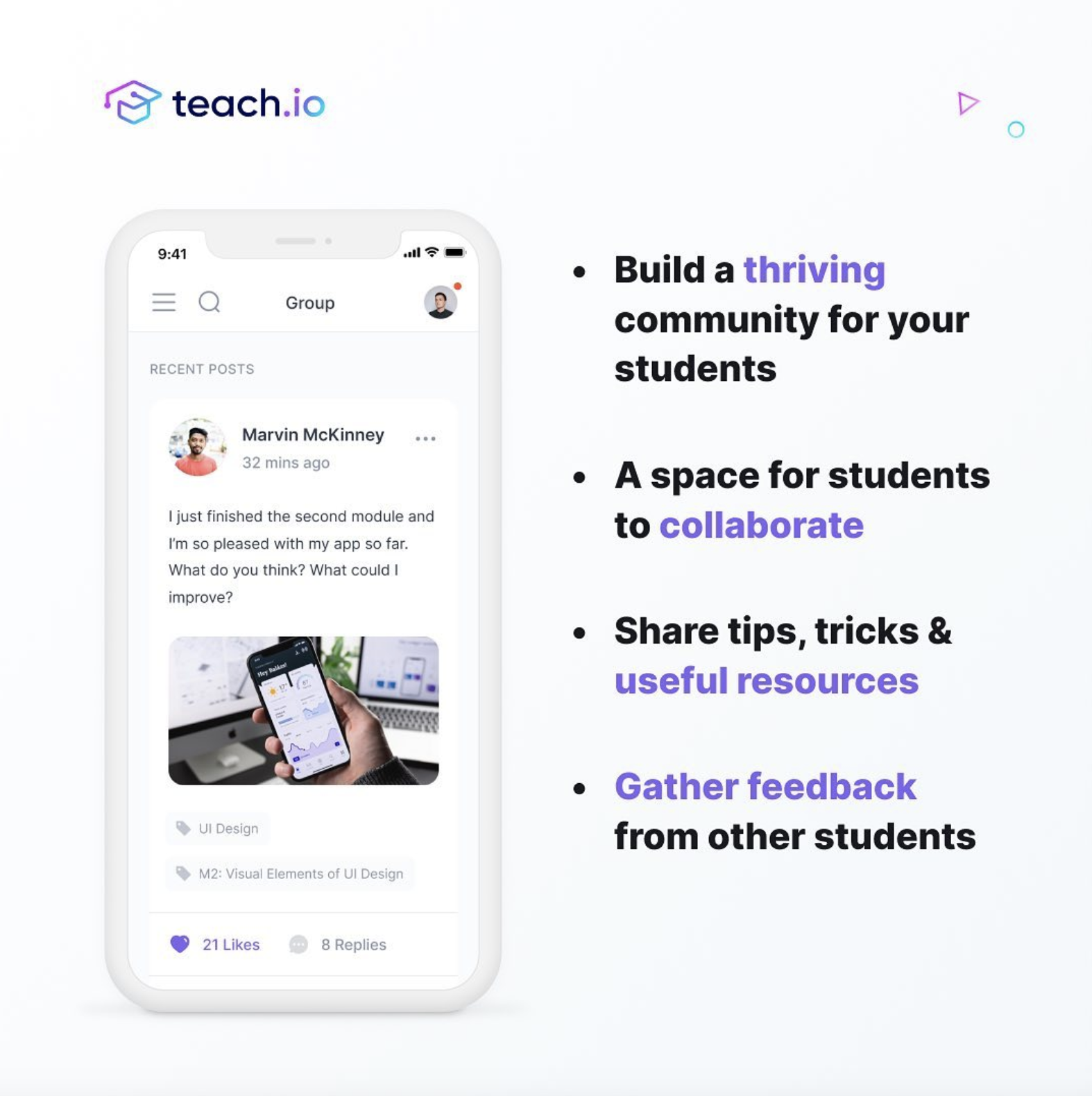In today’s fast-paced, digitally-driven world, online education has emerged as a pivotal player in the realm of learning. You might be wondering, “How many students take online courses?” Well, the numbers are nothing short of astonishing.
In the United States alone, a staggering 9.4 million undergraduate students, which accounts for 61% of all undergraduates, were enrolled in at least one distance education course in fall 2021, as per the National Center for Education Statistics (NCES).
Furthermore, BestColleges reveals that in 2021, about 60% of all college students, totaling 11.2 million, took at least one class online. These figures are a testament to the burgeoning prevalence of online learning, reshaping the education sector.
Understanding the Magnitude: Online Learning Statistics

The online learning industry is not just a fleeting trend; it’s a revolution in education. In 2023, Forbes reported that nearly 2.79 million students, which is close to 15% of all U.S. postsecondary learners, were enrolled in online colleges and universities.
The versatility and accessibility of online courses appeal to a wide spectrum of students, including graduate students and adult students, who seek flexibility alongside their other commitments.
Online Education’s Impact on Traditional Learning

The transformative wave of online education is significantly altering the foundation of traditional learning systems. The current statistics reveal that a majority of college students are now engaging with online courses, evidencing a profound transition away from conventional classroom-based education. This shift toward remote learning has seen an unprecedented acceleration due to the COVID-19 pandemic, compelling educational institutions across the globe to critically reassess and innovate their instructional approaches.
The rise in the number of students enrolled in online programs signifies a pivotal change in the educational paradigm, with online college students at the forefront of this evolution. The convenience, flexibility, and broad accessibility of online learning platforms have democratized education, making it possible for learners from diverse backgrounds, including those with demanding schedules or geographical constraints, to access quality education.
Moreover, the adaptation to online education has necessitated the development of new pedagogical strategies, incorporating advanced technological tools and digital resources to enhance the learning experience. Educators are now employing a variety of online teaching methods, including synchronous and asynchronous learning, interactive webinars, and digital collaboration platforms, to engage students and facilitate a more inclusive and interactive learning environment.
This trend towards remote learning has not only expanded educational opportunities but has also prompted a reevaluation of what constitutes effective teaching and learning. The integration of online students into the educational landscape is reshaping how knowledge is delivered and consumed, challenging traditional notions of classroom interaction and learning assessment.
The significant uptick in online college students enrolling in digital courses marks a critical shift in the educational sector, underscored by the rapid adaptation to remote learning in response to global challenges. This evolution reflects a broader trend towards a more accessible, flexible, and technology-driven education system, poised to meet the diverse needs and preferences of learners in the 21st century.
Online Learning Trends in the Corporate World

It’s not just the higher education sector that’s riding the wave of online education. The corporate online learning market has seen exponential growth, with companies increasingly investing in e-learning platforms to facilitate employee engagement and skill development. This integration of online learning tools in the corporate world highlights the versatility and effectiveness of online education.
The phenomenon of online learning is not confined to academic institutions; it has also taken a firm hold within the corporate sector, showcasing a remarkable expansion in the e-learning market. Companies across various industries are now channeling substantial investments into e-learning platforms, recognizing their potential to enhance employee engagement, facilitate continuous professional development, and streamline workforce training.
This surge in the corporate adoption of online schools and e-learning solutions underscores the adaptability and efficiency of digital education modalities. The online learning trends in the corporate world reflect a strategic shift towards leveraging technology to meet the evolving needs of the modern workforce. Through customized e-learning courses, interactive training modules, and on-demand learning resources, organizations are able to provide their employees with flexible and accessible options for skill enhancement and personal growth.
The growth of the e-learning market within the corporate sphere is indicative of a broader recognition of the value that online education brings to professional development. Online learners in the corporate setting benefit from the ability to balance their work responsibilities with learning opportunities, enabling them to acquire new skills and knowledge at their own pace and convenience.
Moreover, the integration of advanced technologies, such as artificial intelligence (AI), virtual reality (VR), and augmented reality (AR), into e-learning platforms has further enriched the online learning experience, making it more interactive, engaging, and effective. These technological advancements have opened up new avenues for simulation-based learning, real-time feedback, and personalized learning paths, thereby enhancing the overall learning and development landscape in the corporate world.
The adoption of online learning tools and platforms in the corporate sector is a testament to the growing recognition of e-learning as a critical component of employee development strategies. The expansion of the e-learning market within this domain highlights the increasing demand for flexible, innovative, and technology-driven learning solutions that cater to the dynamic needs of today’s businesses and their workforce.
The Role of Online Learning Platforms and Providers

Online education providers and platforms play a crucial role in this educational revolution. From massive open online courses (MOOCs) offered by platforms like Western Governors University and Grand Canyon University to fully online programs provided by traditional universities, the options are diverse and ever-expanding. These platforms not only offer a wide range of online degree programs but also encourage students to engage in lifelong learning.
The Global Perspective: Online Learning Beyond Borders

The phenomenon of online learning isn’t confined to the United States. The global student population is increasingly turning to online universities and colleges for their educational needs. The European Higher Education Area, for instance, has seen a rise in online learning users, echoing similar trends worldwide.
Online Learning Tools and Technologies: The Enablers

Behind every successful online course or program are the advanced online learning tools and technologies that make virtual learning seamless and interactive. From mobile e-learning applications to sophisticated learning management systems, these technologies are the backbone of the online learning market. They not only facilitate learning but also replicate the interactive and engaging experience of in-person learning.
The Future of Online Education: Predictions and Trends

As we look ahead, the online learning market is poised for continued growth. Top online learning statistics suggest that the demand for online learning programs and distance learning courses will keep rising. This growth is driven by the ever-evolving needs of the global elearning market and the continuous advancements in education technology.
The Impact of Online Learning on Student Engagement and Success

The transition to online education has raised questions about student engagement and success. While remote learners face unique challenges compared to those in a traditional classroom setting, online learning platforms are continually innovating to create more engaging and effective learning experiences. The use of interactive content, collaborative tools, and personalized learning paths are just some of the ways online classes are evolving to meet student needs.
Online Learning and the Pandemic: A Catalyst for Change
The COVID-19 pandemic played a pivotal role in the acceleration of online education. The World Health Organization’s guidelines and the subsequent lockdowns led to a dramatic increase in students studying online. This unexpected shift not only highlighted the flexibility of online learning but also its resilience in times of crisis.
Concluding Thoughts: The Future is Online

In conclusion, the question of “how many students take online courses” leads to an understanding of a dynamic and evolving landscape in education. From undergraduate students to professionals in the corporate world, the reach of online learning is vast and inclusive.
As the world continues to embrace digital solutions, the future of education lies in the balance between online programs and traditional education, creating a hybrid model that benefits learners across the globe.
As we move forward, it’s clear that the online learning industry will continue to grow and transform, offering endless possibilities for learners everywhere. Whether it’s through distance education courses, online degree programs, or corporate e-learning, the realm of online education is set to redefine the way we learn and engage with knowledge.






Build once, earn forever
Are you ready to start making an income from your skills? Explore the full potential of our cutting-edge course creation platform with a 14-day FREE trial, and start earning on autopilot.
Try For Free
